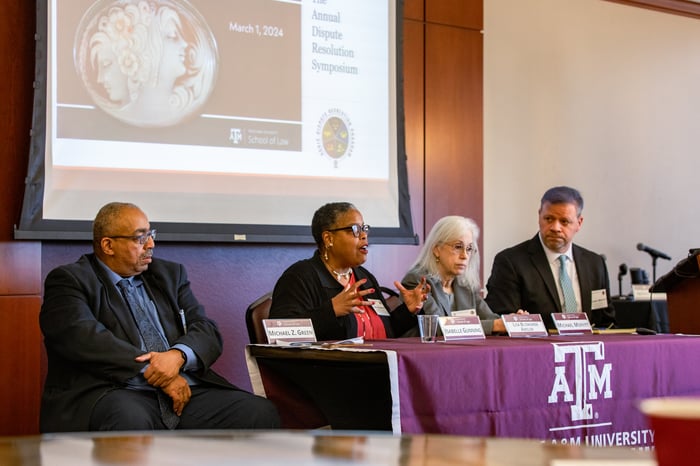
Scholars and field practitioners convened at Texas A&M Law at the annual Aggie Dispute Resolution Symposium on Friday, March 1. Known for its constructive dialogue on key issues facing dispute resolution, the symposium featured three panels led by national experts.
This year's theme was "The Two Faces of Mediation: Reasons for Worry, Reasons for Hope.” Attendees and presenters discussed mediation’s successes, its adaptations, the role of AI, and what should be at the procedure’s core.
The first panel, titled “Bullish on Mediation,” was moderated by Cynthia Alkon. It featured professors Jim Alfini from South Texas College of Law Houston, Michael Colatrella from the McGeorge School of Law at the University of the Pacific, McGeorge School of Law, Kelly Browe Olson from the William H. Bowen School of Law at the University of Arkansas – Little Rock.
The second panel, titled “Different Frames for Assessing What Mediation Provides,” was moderated by Michael Z. Green. It featured professors Lisa Blomgren Amsler from the Paul H. O’Neill School of Public and Environmental Affairs at Indiana University, Isabelle Gunning from Southwestern Law School, and Michael Moffitt from the University of Oregon School of Law.
The symposium’s final panel, titled “Worry and Hope as We look to the Future,” was moderated by Peter Reilly. It featured panelists Erin Archerd from the University of Detroit Mercy School of Law, Art Hinshaw from the Sandra Day O’Connor College of Law at Arizona State University, and Colin Rule, CEO of mediate.com and odr.com and practitioner-in-residence at Texas A&M University School of Law.